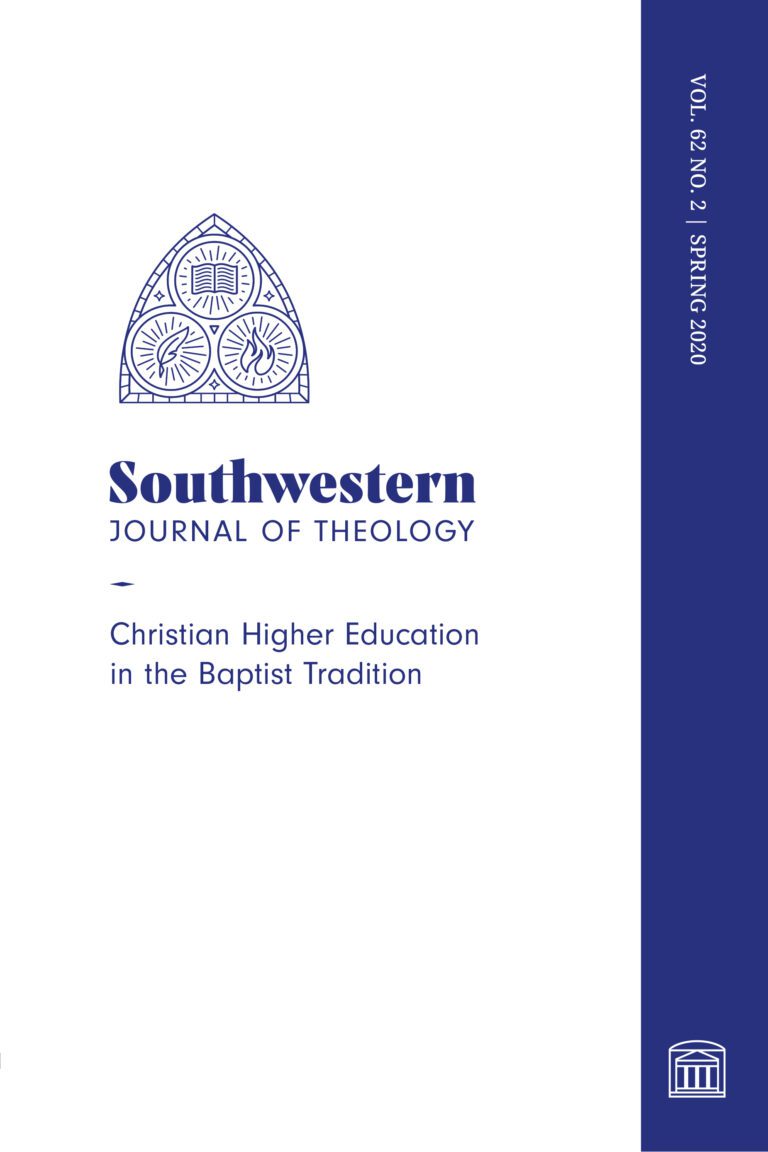
Christian Higher Education in the Baptist Tradition
Southwestern Journal of Theology
Volume 62, No. 2 – Spring 2020
Editor: David S. Dockery
By Justin Wainscott. Eugene OR: Resource Publications, 2019, 114 pp., $15.00 paper
Across the ages, the leading pastors of the Christian church have quite often been poets who also wrote many of the hymns of the church. I have long thought this was something we need to regain and have urged students preparing for the pastorate to give attention to poetry—reading and writing it. Surely attention to and care for words, which poetry requires and nurtures, is beneficial to those whose business it is to care for souls by tending to the Word and words used to proclaim it. Therefore, I was delighted to see this new book, written by a pastor-poet.
The book is divided into two sections labelled “Hymns” and “Poems.” The first section contains about 40 hymns including metrical psalms, additional stanzas to well-known hymns, and completely new hymns. Each one is provided with suggested tunes commonly used with well-known hymns, which makes it easy to incorporate these into corporate worship. Many evangelicals have forgotten the church’s practice of singing the Psalms, so these new metered Psalms are quite welcome. I have used some of them in events I have planned, and they have been well-received. For full disclosure, Justin Wainscott is one of my pastors. But, that just means I have had the privilege of seeing some of these poems emerge and make their way into the hymnody of our church. When we wanted a baptism hymn but could not find a strong one, Justin composed “Baptized in Union with Our Lord,” which is now a staple for our church. I have also deeply appreciated his additional stanza for the Gettys’ “He Will Hold Me Fast,” which I have become so accustomed to that I forgot it was an added verse. These hymns are helpful for private devotion as well as corporate worship.
The second section of the book contains over 50 poems on a wide range of topics including motherhood, family, everyday life, and baseball, as well as theology and Christian living. Coming from the wide range of life, these poems represent the range of emotions from simple pleasures to love, joy, wonder, lament, contemplation, and rebuke. Reading good poetry like this helps you to be more human as you explore your own soul with the poet. He helps you to recognize these same emotions within you, often drawing out what is within you and giving it voice. Reading these poems helped me to wonder anew, to rejoice, to ponder more deeply, to express my grief, and to rise in hope.
I warmly commend this book of poems and hope it will also encourage other pastors to consider the soul-crafting value of poetry.





